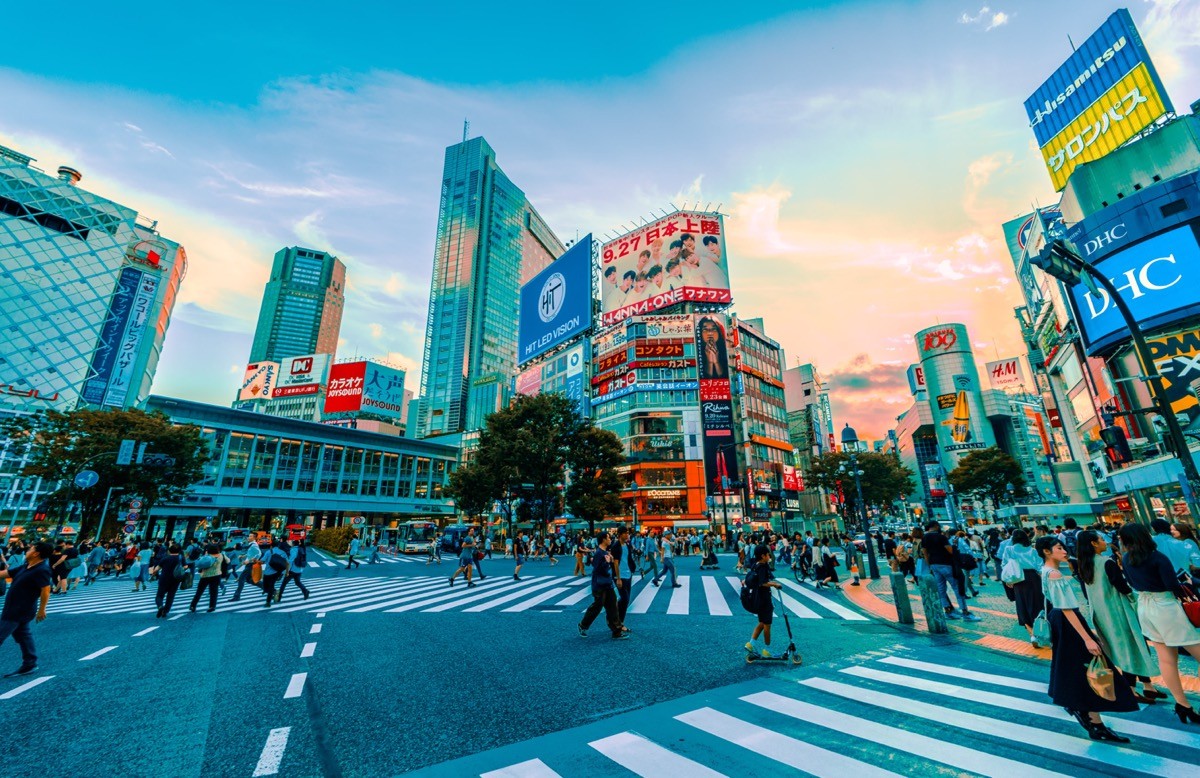Insights
Startup Ecosystem Building: Insights from Japan
Aug 31, 2021
After the lost decade of the 1990’s in Japan, the number of temporary workers dramatically increased due to the economic stagnation. The shift in the labor workforce, which was historically dominated by large corporations, led to a change in mindset. In the late 2000’s, a startup ecosystem started emerging in Japan.
How has the mindset or startup culture evolved since then? Is the ecosystem growing? What proactive measures were taken to build the ecosystem? How are entrepreneurs fundraising? What does talent availability look like in this nascent ecosystem? We examine all these questions in our conversation with Nahoko Toyota.
A Timid Startup Culture
In general, the Japanese society is risk averse. However, when really looking hard at facts "in Japan the risk mainly exists in our minds" says Nahoko, “the worst thing that can happen for a young entrepreneur is for the startup to fail but there is always a social security system and companies hire candidates with entrepreneurial skills” she adds. Indeed, their livelihood or whole career success is not at stake, unlike in some developing countries.
The Japanese society has traditionally been based on equality and uniformity; people still tend to hesitate to 'stand out'. Many top university students envision and aspire for a career in the government, as public servants, or working for large conglomerates also known as Zaibatsu’s, almost never for a small startup or as an entrepreneur.
This limited aspiration to work for startups is not a surprise because startups receive limited attention in the media and entertainment and "when you cannot see it, you cannot be it" according to Nahoko. However, there seems to be a shift in career aspirations in the last decade or so.
Increasingly, large companies have a Corporate Venture Capital (CVC) arm- usually structured as a separate entity- and intrapreneurship is encouraged. Many individuals who have gained experience in startup ecosystems abroad are integrated in large companies or startups in Japan and playing the role of 'interpreter' or 'intermediary', translating novel and disruptive approaches into the existing corporate or governmental environment, including highly regulated industries.
Startup funding
Access to finance has greatly improved and is less of an issue for growing startups in Japan.
Seed/Early stage: Entrepreneurs have access to support programs and grants run by local governments.
Middle/Later stage: Entrepreneurs have access to VC capital (homegrown firms and from other countries) and CVC
Growth/Scale stage: Entrepreneurs have access to VC and CVC.
In addition, in the early stages entrepreneurs have access to Government led incubators and accelerators managed by private firms (e.g., Deloitte[1], 500Startups[2]) and staffed with individuals with experience in the private sector. For example, 'Innovation Officers' in Kobe city are contract-based public servants with experience working in the private sector.
Startup Regulatory Environment
Japanese startup entrepreneurs tend not to challenge the current laws and regulations but to find a way to co-exist with them while creating a better user experience.
The policies and regulatory environment leave whitespaces for entrepreneurship and innovation. Disruption in the Japanese startup ecosystem can be qualified as "harmonious" as there is a close linkage or symbiosis between the industry and the startup ecosystem (e.g. Docomo Ventures[3]). Incentives and interests are aligned between startupers, corporations, and policy makers which usually leads to little friction between all those ecosystem actors.
In addition, CxO's from scaling startups are starting to serve the ecosystem as angel investors and mentors for the next generation of startupers. Clusters are also formed to build innovation ecosystems like the Kansai (Kyoto-Osaka-Kobe) Startup Ecosystem[4].
Finding talent
Local talent is increasingly aware of the startup industry and interested in joining it although this has not become mainstream yet. There have been nationwide campaigns like J-Startup[5] to entice the youth to join the ecosystem and grow globally. Interestingly, a popular TV show from South Korea called startup[6] seems to have captured the attention of the youth and is democratizing the concept of startups as well.
Furthermore, attracting talent from abroad remains an option through the startup visa coordinated by the Ministry of Economy, Trade, and Industry (METI)[7] but coordinated at the municipality or city level.
Taking stock
The Startup ecosystem in Japan is growing in its volume and breadth of disruption; “It is also developing its own uniqueness in comparison with over ten years ago when people were looking at Silicon Valley and pondering how to copy and paste it” says Nahoko.
Global standards and best practices have been incorporated into the startup ecosystem. According to Nahoko, “now that we learned what needs to be localized in the local context, I believe we are in a much better place to start, support, and invest in startups in Japan.”
[1] Tokyo Acceleration Program, Operating the Aoyama Startup Acceleration Center supported by the Tokyo Metropolitan Government, Deloitte, September 15, 2015
[2] 500 Startups Kobe Accelerator 500kobe.com & ecosystems.500.co/accelerate_aichi/growth_program
[3] NTT DOCOMO Ventures, https://www.nttdocomo-v.com/en/
[4] Turning the Kyoto-Osaka-Kobe Bay Area into a Global Startup Ecosystem, Jetro, May 25, 2021
[5] https://www.j-startup.go.jp/en/
[6] https://asianwiki.com/Start-Up_(Korean_Drama)
[7]https://www.meti.go.jp/english/policy/economy/startup_nbp/startup_visa.html
